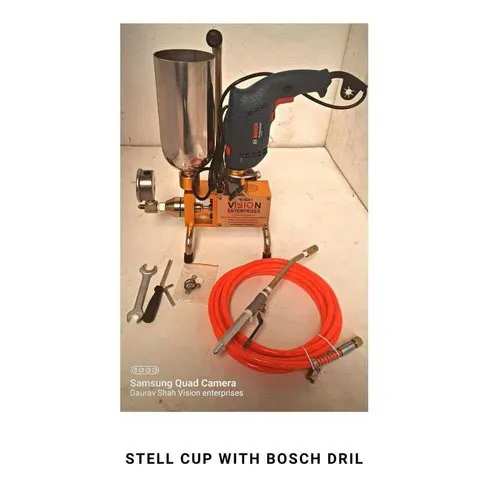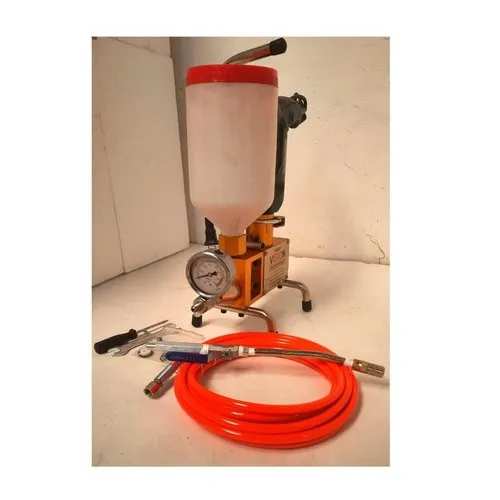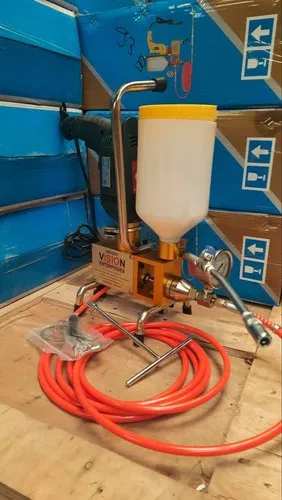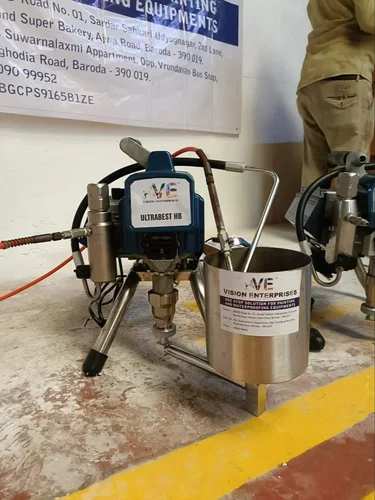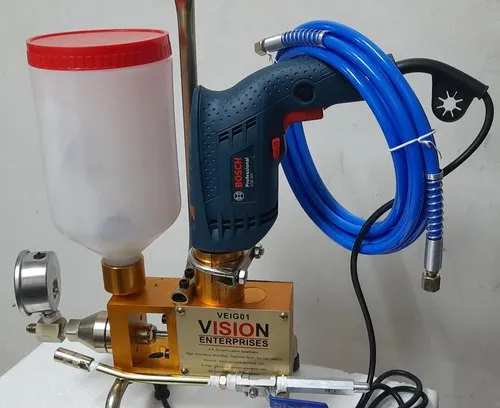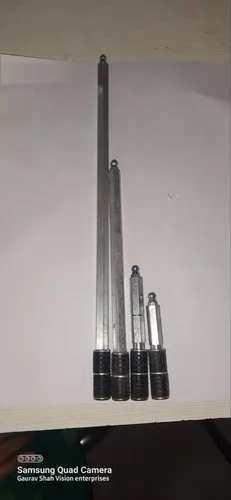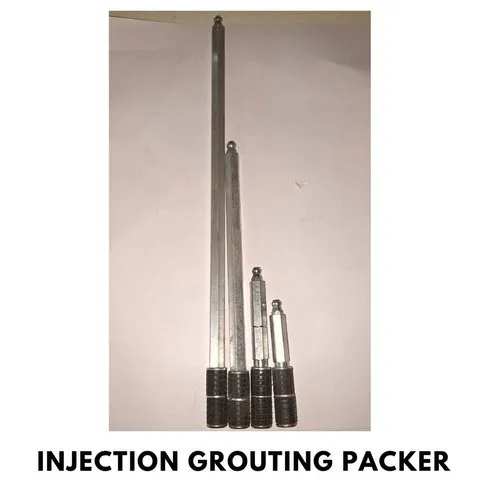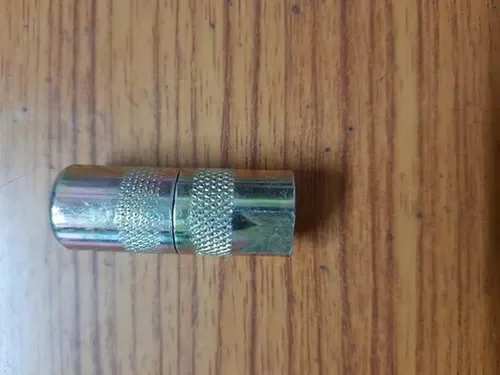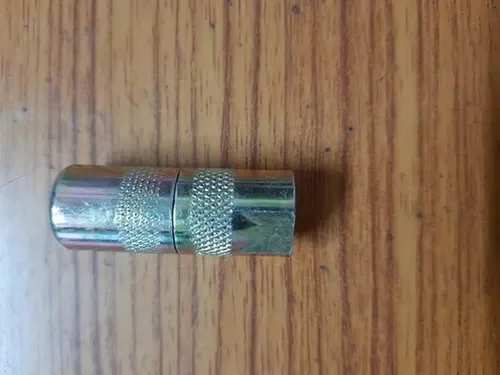Injection Grouting Type: PU Property Type: Commercial Applicable Area: Concrete Surfaces Weight: 9 Kg Maximum Output Pressure: 450 Bar Brand: Vision Enterprises Power: 700 W Voltage: 440 V vision enterprises epocy injection grouting machine with bosch drill & steel cup PU injection grouting pumps are specialized tools used to inject polyurethane (PU) resin into cracks, voids, and other gaps in concrete and masonry structures. The resin expands and hardens, filling the gaps and strengthening the structure. Here's an overview of PU injection grouting pumps: Types: Manual pumps: These are portable and hand-operated, ideal for small-scale projects or tight spaces Electric pumps: More powerful than manual pumps, suitable for larger projects and higher injection pressures. Pneumatic pumps: Offer high flow rates and pressure for large-scale grouting jobs Key features: Mixing ratio control: Ensures accurate mixing of the PU resin and hardener in the desired ratio (typically 1:1). Injection pressure: Varies depending on the pump type and model, typically ranging from 100 bar to 750 bar. Flow rate: Determines the speed of grout injection, ranging from 0.5 L/min to 10 L/min. Material compatibility: Should be compatible with the specific PU resin and hardener being used.
Send Message
